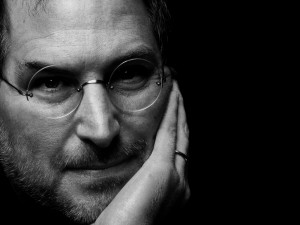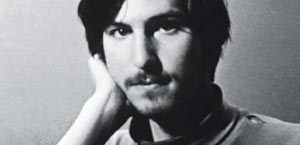The Paradox of Leading Like Steve
 Even as the world remembers the accomplishments of Steve Jobs and his powerful brand of innovative leadership, we are tempted to want to emulate him. You don’t need to like or even know Steve Jobs to respect and admire what he accomplished. Jobs himself sought to re-constitute and renew Apple University in the closing months of his tenure as CEO. Today Apple U is tasked with the challenge of “institutionalizing” the insights and wisdom of this remarkable man, seeking to assure continuity and sustainability at Apple. There is, however, a problematic paradox in this: emulating others is not what made Steve Jobs great.
Even as the world remembers the accomplishments of Steve Jobs and his powerful brand of innovative leadership, we are tempted to want to emulate him. You don’t need to like or even know Steve Jobs to respect and admire what he accomplished. Jobs himself sought to re-constitute and renew Apple University in the closing months of his tenure as CEO. Today Apple U is tasked with the challenge of “institutionalizing” the insights and wisdom of this remarkable man, seeking to assure continuity and sustainability at Apple. There is, however, a problematic paradox in this: emulating others is not what made Steve Jobs great.
“Don’t be trapped by dogma, living with the results of other people’s thinking…” Jobs himself declared in his Stanford 2005 Commencement Address. As the articles and accolades are piling up, he readily becomes a larger-than-life leader. We too readily forget the unconventional path he followed. He “broke the rules”. He was not afraid to fail. He knew that leadership is born from the courage to be who you are.
We all need to learn to think more for ourselves. This requires time and effort, most especially in an era when the answer to most everything can be “googled”. Young entrepreneurs and aspiring leaders may be tempted to follow Job’s example – including his reputed harsh, often impatient, sometimes out right dictatorial leadership style. The rules which you and I need to break, however, cannot be dictated by someone else. Nor can they be “institutionalized”. What worked for Jobs will not work for you or me.
From the very beginning Steve Jobs was a leader who took risks. He took enormous risks financially to innovate in the late 1970’s. From his early “two guys in a garage” Apple computers all the way through Apple’s early success, his work at NeXT and then Pixar – Jobs invested in his own beliefs, his own truths. He put his own future on the line and found himself veering way outside the established norms of innovation, company structure, and certainly management.
Steve Jobs wasn’t afraid to fail. As he said, “If you look at my life, I’ve never gotten it right the first time. It always takes me twice.” This is a bold way to live and lead – always ready to fail at least once before actually finding the best solution or any kind of success. “Getting fired from Apple was the best thing that ever happened to me, ” he declared in the same Stanford Commencement Address.

The difference between Steve Jobs and most of us is having the courage to live into the power of his own deepest convictions. Whatever models for effective leadership have influenced you, learn the value of being different. Discover how to capitalize on the more “marginal” aspects of your personality. Be creative; don’t force fit yourself into others’ leadership mold. These and other “development skills” will equip you to empower other leaders even as you engage with the challenges and dilemmas of the world around you by courageously being yourself.
“Have the confidence to follow your own heart, even when it leads you off the well-worn path,” he said. Courage in the face of obstacles, even life-threatening illness, characterizes Job’s leadership.
In breaking the rules, Steve Jobs not only helped to revive and renew Apple; he has left his mark on history. Job’s leadership, whether he was likable or not, was authentic. It was his. He led from his center. He broke the paradigms of technical design as well as many traditional leadership maxims.
Following the example of Steve Jobs, think for yourself, be yourself, lead from your center. Do not simply try to emulate someone else, even Steve Jobs.

Interesting thoughts. Have you ever considered how the generation that created the computing industry has been so different. Jobs, Gates, Paul Allen, so on and on…all perfectly capable to compete in the best of academia, but all thought that the formal education process was simply too dull for them. In other words all the beating on how we need to improve our education system to have an innovation society is simply wrong. What the formal education process does it beats out of people the creativity, the individuality, the ability to be comfortable going out of the system, and so on and on. Most of the really creative and original individuals broke the education mold!!! So when you advise your clients and friends not to emulate Steve Jobs you are being realistic about the life most have chosen and how they have worked so hard to fit in. If you looks at some of the most creative folks, including many Nobel Laurates, not all, but many have also lived a life that challenged the “mold” and more often than not “broke the mold” As you know in large, structured organizations more often than not those who try to break the mold have their head cracked. But, not all….